Kids And Dogs: How Their Learning Styles Are Alike
Throughout my journey of parenting a puppy I noticed several correlations between parenting/teaching children and a canine.
Intrigued by the similarities, I wanted to learn more and signed up for classes to earn my Canine Specialist Degree.
Looking back it was the BEST. DECISION. EVER.
Becoming a dog trainer has led me to learn more about the canine species, become a better pet parent, and provide me with the opportunity to help other pet owners, like myself, connect on a deeper level with their pets.
Through my studies, observations, and own experiences I bring to you my seven essential strategies to raising a productive, independent and well-rounded child (canine or not).
I’m sure we can all agree that raising kids isn’t easy, but with these seven tools, you can rest assure that you are on your way to successful parenting!
For more information on parenting a fur baby go to EPIC Dog Training
1. Routine
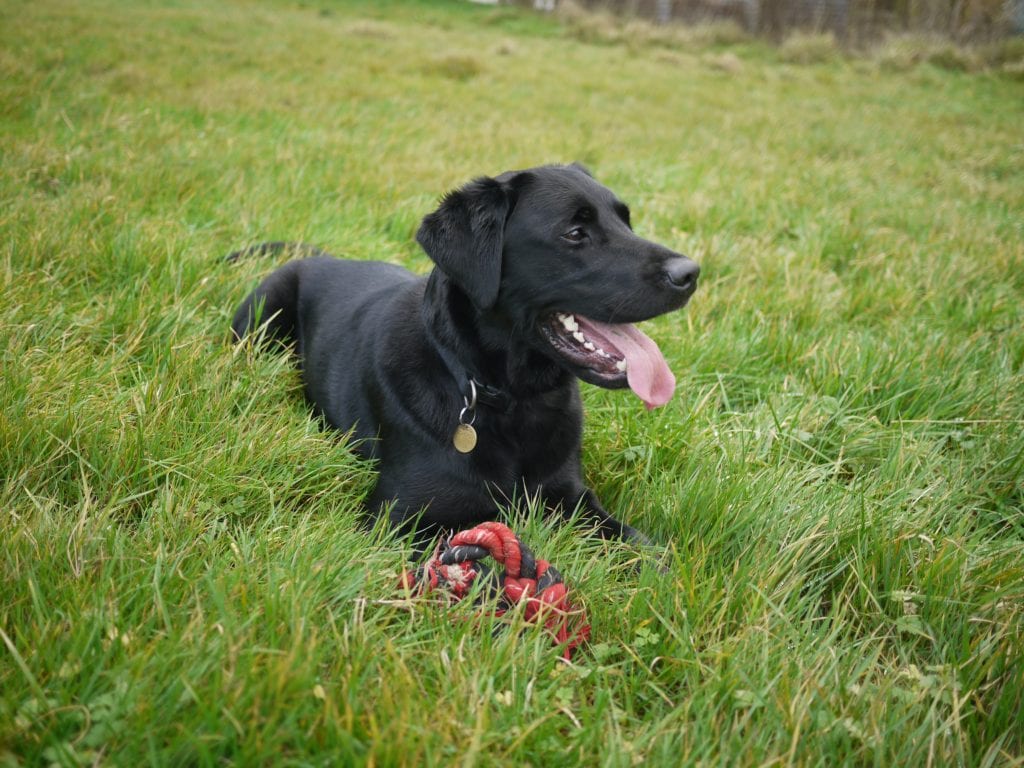
Both children and dogs can’t tell time.
Through developing a solid routine, both kids and canines learn what Is to be expected of them and helps foster a sense of security knowing what is expected of them in the day ahead.
2. Consistency
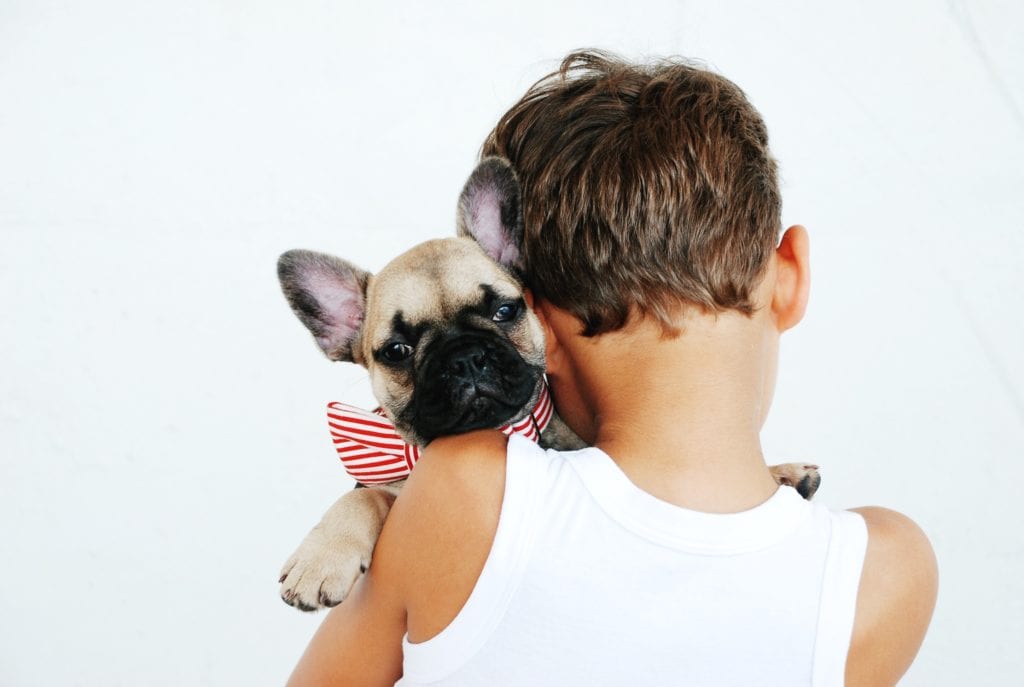
Both Kids and dogs thrive off consistency.
As stated above, routine and consistency go hand in hand.
Parents who follow a routine and have consistent expectations will have better-behaved children.
Setting expectations for behavior and following through with consequences when those expectations aren’t met Is critical for developing a well-behaved child.
For example, if the rule is… if you jump on the bed, then go to bed without tv that night.
There is a cause and effect here.
It’s of utmost importance that parents follow through with the consequence.
When parents are consistent children learn to understand that you mean business.
You’re not being mean.
You’re not being negative.
It’s simply a rule that has been established. It’s when parents threaten to take the tv away and then don’t follow through that kids learn that they can push boundaries and they may or may not suffer the consequence.
Same for dogs.
Although dogs learn through making mistakes, just like kids, dogs are quick learners and figure out pretty quickly what is expected of them and what isn’t.
For example, when training a dog to sit when they sit, they receive a treat.
When they don’t sit, they don’t get a treat.
They may fail the first couple of times, but it won’t take them long to associate sitting with receiving a treat.
But if you treat your dog when they aren’t sitting then your behavior sends mixed messages to your dog and like the children, he will learn to push the Inconsistent boundaries.
3. Positive Reinforcement
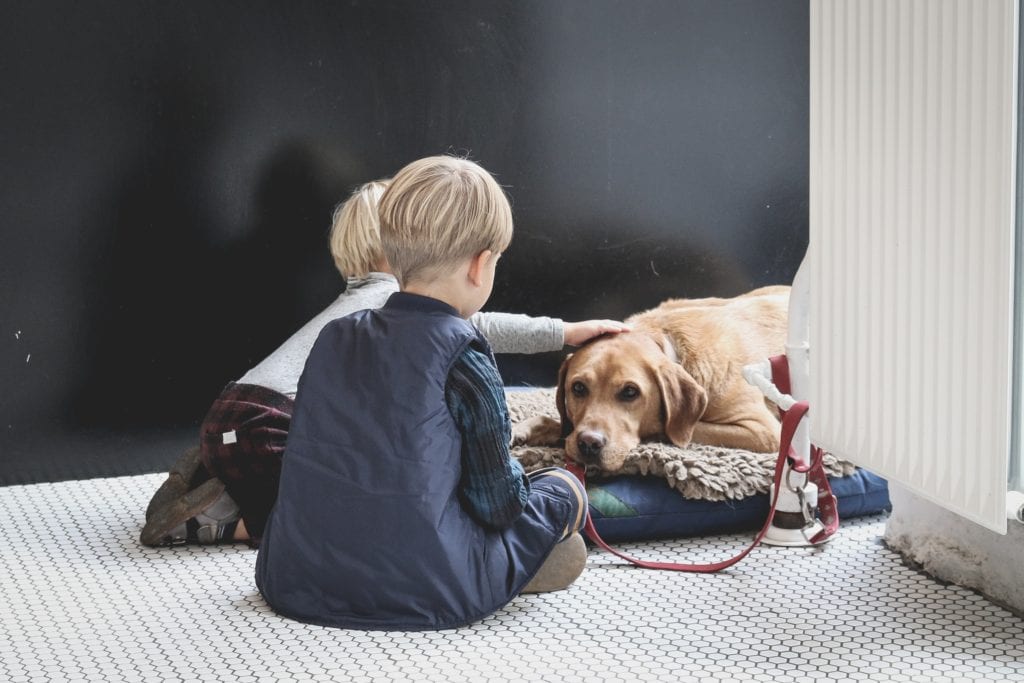
Kids and dogs are born with in an innate sense of wanting to please.
Both parties live in the moment and love learning new things.
By keeping learning fun we give them the gift of enjoyment while rewarding them with our words of affirmation.
Our positive praise and genuine responses encourage others our children and our fur babies to be lifelong learners.
Of course, this doesn’t mean we’ll never have to correct behavior or say no!
However, it does mean that if we focus more on the things we’re looking for and less on what we aren’t looking for we will be teaching our children how to learn from their mistakes and take pride in their accomplishments.
Positive reinforcement is essential for both kids and puppies. For more information on how to help kids in school go to What Should My Child Know Before Kindergarten
4. Instruction/Practice
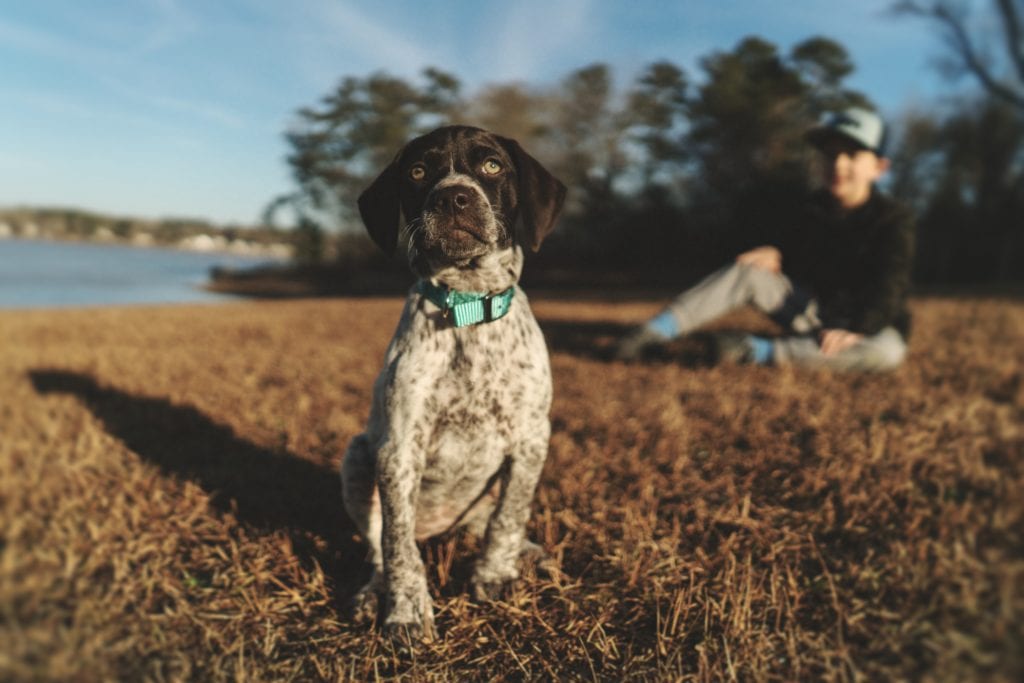
Raising children and puppies takes an enormous amount of time and patience.
Kids (and puppies) are born as blank slates and suffer from a genuine dose of egocentricity!
Often children and dogs don’t mean to make the wrong choice, however, life is crazy confusing and without consistent coaching, social norms and expectations become a bit confusing.
Dogs have a harder time conforming to the human world because canine instincts are often far from human instincts, and being that we don’t speak the same language causes a huge communication gap between the human and canine world.
Be gentle. Be kind. Be patient.
When rules are created and expectations are consistent, learning can flourish.
5. We Learn From Mistakes
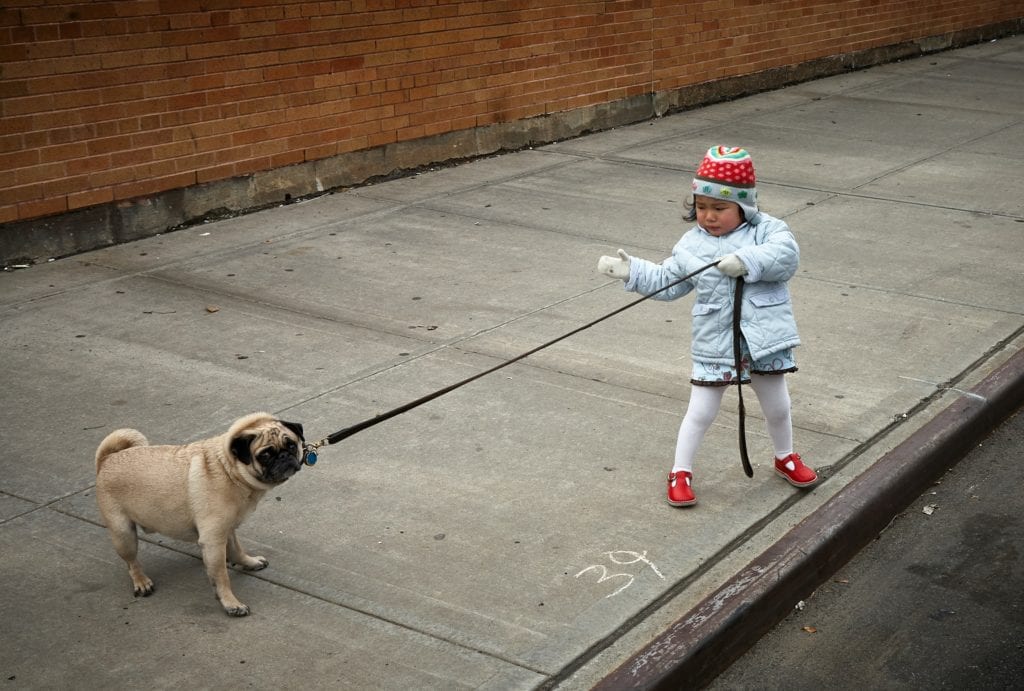
Both the human and canine species learn through trial and error.
This isn’t any fault of their own, they are just new to this world and need time to figure things out as they go.
Our job as parents is to help set our children (and pets) up for success.
Trial and error is just a way of life and the faster we learn to accept that, we can push through the frustration and celebrate the small successes.
6. Patience
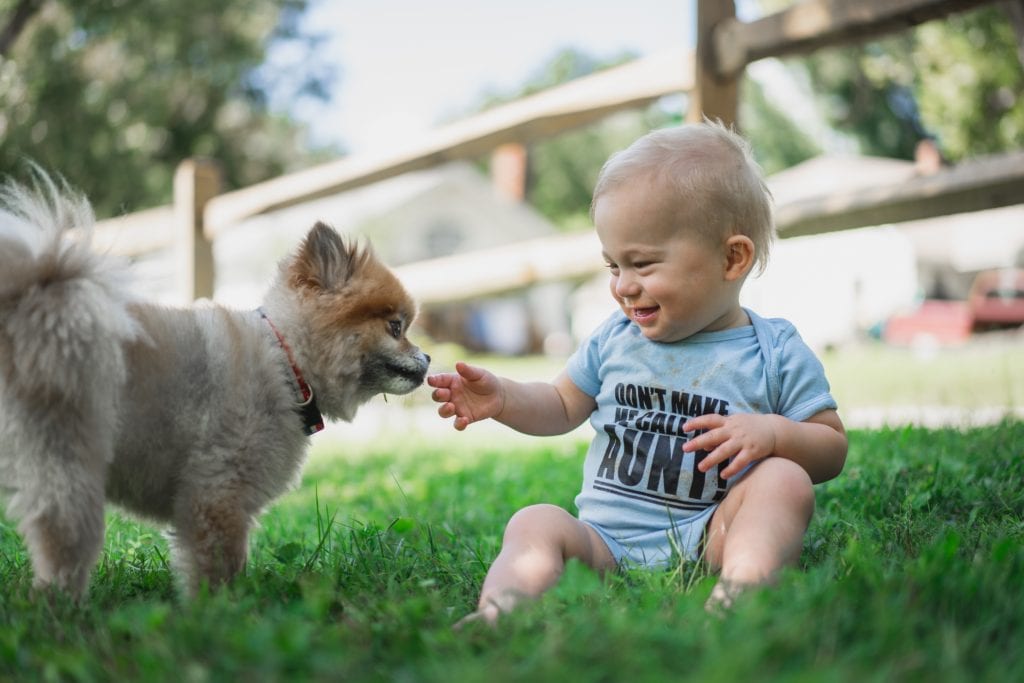
Raising children (and canines) isn’t a walk in the park!
No one is perfect and we all make mistakes.
When an adult decides to have a child (or adopt a pet) it is important to remind ourselves that raising a child (dog) is a process.
As the adult must mentally prepare ourselves for the mistakes that our children (and pets) ARE going to make.
Misbehaviors will occur.
Nice things are going to get ruined, and we are going to have every single one of our buttons pushed.
We must remember in these times to take a deep breath, remember that we signed up for these mistakes and that with every mistake comes a learning opportunity.
7. Unconditional Love
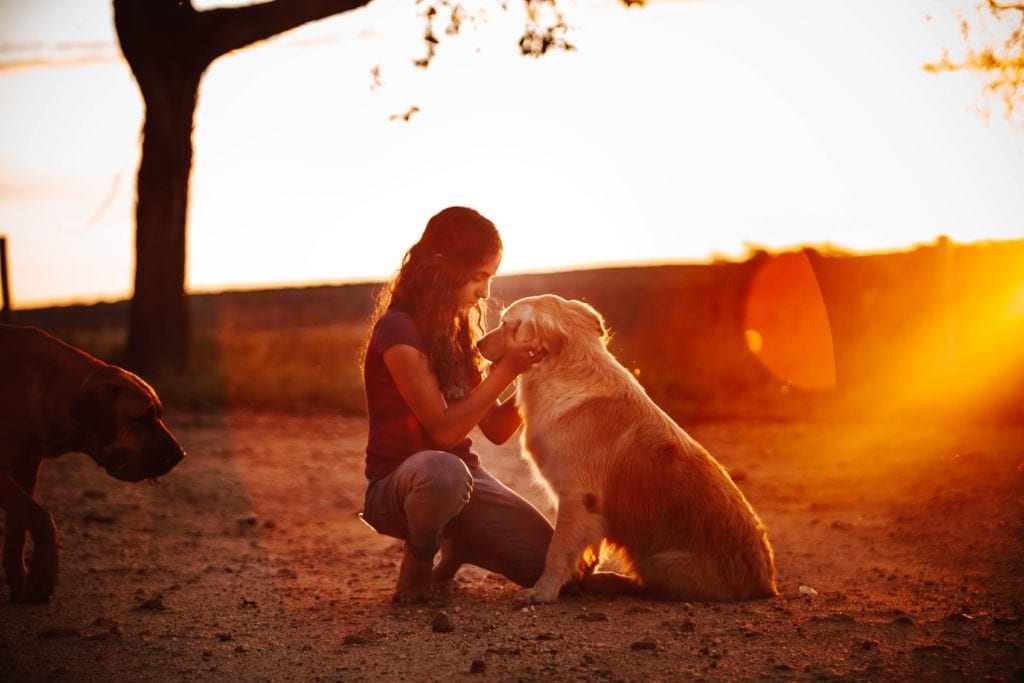
As a parent, your unconditional love is the absolutely most important key to raising a well rounded child (dog).
When kids are loved unconditionally (and all the above strategies are in place), your child (human or canine) is given the opportunity to develop self-confidence and intrinsic motivation to be the best they can be.
Because in the long run, our goal as parents is to raise well-rounded individuals that will go out and make this world a better place for both kids and dogs!
Meet the Author!

Hi! My name is Danielle Franke and I am both an Early Childhood Educator and Certified Canine Specialist in Tampa, Florida. After teaching Kindergarten for fifteen years our family decided that we were ready to welcome a dog into our family. My kids were old enough (13 and 8) to take some responsibility for adopting a fur-baby however, I knew that almost all of the responsibilities of becoming a pet owner would fall on my shoulders. I wanted to make sure I did things right. I wanted to be proactive and began my research on owning and house training a puppy BEFORE bringing the dog home. I had a lot of work ahead of me.
In the following four weeks of agreeing to adopt, I did an enormous amount of research. I found a reputable veterinarian, signed up for puppy classes at our local pet store, and began reading every puppy book I could get my hands on. Then a few weeks later we rescued Zeus, a 16-week old lab/shepherd mix. With all the research I’d done I felt fairly confident that I could tackle almost anything parenting a puppy would throw at me. It was an experience for sure!

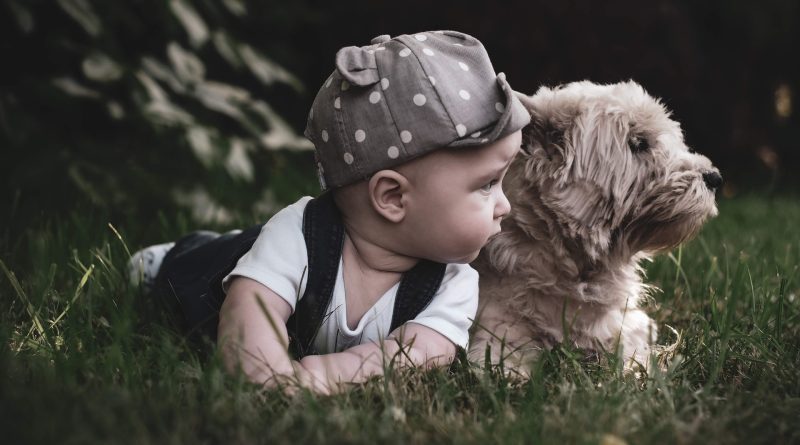

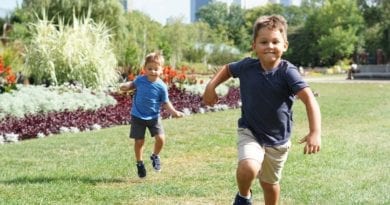

I like the efforts you have put in this, appreciate it for all the great content.